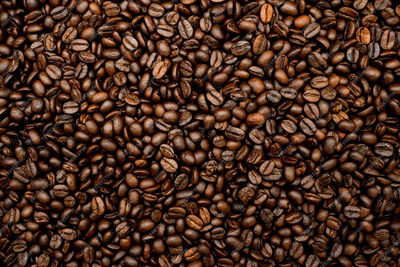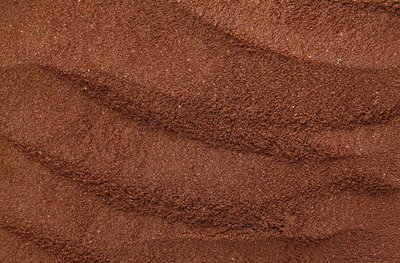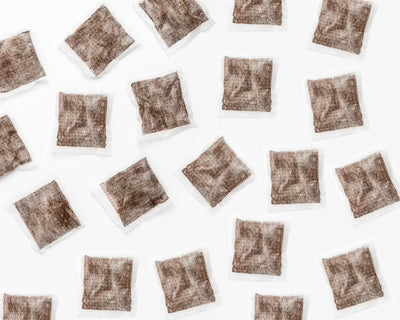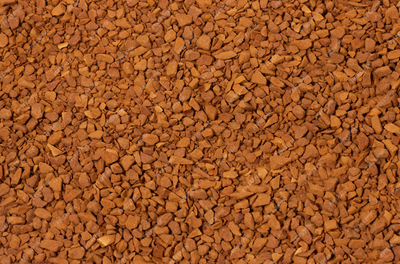As a coffee lover, here at Presto Coffee we want to share with you one of our favourite methods by adding a touch of cinnamon to your coffee. If your reading this we assume you must have tried to spice things up to come up with a new flavour, we all have. It all depends on what you are into reality, most of us have gone on this adventure and we are talking about cream, milk, sugar, literally everything we can get our hands-on. While we may have tried a lot of things to improve and come up with a really new nice flavour, there is one additive you may have missed and should try out, Cinnamon.
Cinnamon can do a lot of good and bring out that new flavour you have been trying to get with its sweet, sharp spice making your coffee more enjoyable. It can do so much more, let us take a look at some of the benefits that come with adding cinnamon to your cup of coffee.
1. Cinnamon Makes Your Coffee Taste Better
This is the best part of adding cinnamon to your coffee, it will change the flavour and gives you the chance to appreciate something different, and won't leave you with the characteristic flavour of most coffee additives. Instead, you'll sweeten the drink without using any sugary, diet-busting ingredients. You don’t really need much when making your cup of coffee with cinnamon, just a teaspoon will do. You can add and make it two teaspoons of cinnamon, another option is to have or use a cinnamon stick which you will have to put in your cup, all of these will give and bring out a very delicious flavour.
2. Health benefits include losing weight
While adding cinnamon to your drink is one the best things you can do to your cup of coffee, Cinnamon also has a reputation for being a good appetite suppressor. It might help you feel full and lessen cravings by adding it to your coffee. You will binge less if you have fewer cravings.
3. Cinnamon Helps Ward of Sickness
In addition to the benefits that comes with cinnamon like relieving the painful throat and stuffy sinuses that accompany with a cold, cinnamon can help you stay healthy by boosting your immune system and preventing sickness. Cinnamon's numerous antioxidants inhibit the growth of microorganisms, decrease cholesterol, and keep the body healthy in general.
4. Cinnamon Will Put Your Brain to Work
Most of coffee consumers uses coffee as one of the things that can give them a jump start in the morning and to keep them active, but adding cinnamon to your mug will increase cognitive processing, boost overall brain function, and help you master your visual and motor responses.
According to studies conducted at Wheeling Jesuit University, it showed the power that cinnamon has and that even by merely smelling cinnamon improves your processing ability. So if inhaling itself does wonders already, swallowing comes with a lot of benefits as well. When the study participants ate cinnamon, they were better able to complete tasks and had higher overall attentiveness. This makes cinnamon the best additive to your early morning cup of coffee.
5. Cinnamon Increases Antioxidants
When we hear about antioxidants, they are commonly linked with fruits and other meals, but cinnamon has a surprising quantity of antioxidants that are beneficial to the body. Cinnamon is a wonderful diet spice since it contains a lot of antioxidants.
One teaspoon of cinnamon it is said to have exactly the same amount of antioxidants that can be found in half a cup of blueberries if measured.
6. Cinnamon can protect against high blood sugar
For those that like sweet things and adding something extra to make their cup of coffee sweeter, Cinnamon is a better alternative for you as it can also be used as sugar for your coffee.
Cinnamon provides a sweet flavor that will give your mouth the best treat as it has a very good sweet flavor, and at the same time keeping you safe from all the calories and harmful effects that comes along with sugar.
Another benefit for Cinnamon is that it helps the entire body by lowering blood sugar rises after meals, boosting insulin sensitivity, and avoiding and soothing inflammation in tissues and joints.
7. Great Energy Boost adding Cinamon to your coffee
According to a Huffington Post, a dash of cinnamon boosts your vitality when mixed with caffeinated coffee. While cinnamon comes with the advantage of maintaining blood sugar and energy levels, avoiding the sugar spike and crash that can occur as a result of meals and snacks. What happen behind the scenes is that coffee is giving you all the energy you need to stay active and the cinnamon does what it knows best which is being in control of your food-based energy sources.
8. Great for your heart
Cinnamon, according to experts, reduces the chance of acquiring heart-related disorders and illnesses. But, at the same time, exercise restraint. Caffeine consumption in excess has been linked to cardiovascular issues.
9. Full of vitamins & Nutrients
Cinnamon has a range of vitamins and nutrients, in addition to all of the other beneficial and healthy elements and features. Now let’s take a look at what good a tablespoon of cinnamon can do for us: that since tablespoon contains 4 grams of fiber, 68 percent of manganese, 8% of calcium, 4% of iron, and 3% of vitamin K, all of this is gained from a tablespoon of cinnamon, according to Dr. Josh Axe. Which means that by drinking coffee with cinnamon, not only are you pleasing your taste buds but you will also receive your caffeine fix as well as a good dosage of your daily vitamins and supplements in one delightful drink.
10. Adding Cinnamon can help treat yeast infections
Candida yeast can cause dysbiosis in the intestines, which houses up to 80% of your immune cells. When this happens, your beneficial probiotic bacteria become less effective at combating dangerous bacteria, fungus, and viruses that enter your body. You may become more prone to sickness as a result of this.
One of the many reasons cinnamon has been used in traditional medicine for so long is because of its antibacterial properties. It has natural antibacterial, antifungal, antibiotic, and antiviral activities, according to studies. The essential oils of cinnamon are also abundant in immune-boosting chemicals.
Cinnamon oil is frequently used as a preventative medicine for people with compromised immune systems to prevent common bacterial diseases like the common cold, strep throat, and pneumonia.
How to Add Cinnamon to Already-Brewed Coffee
If you wish to add cinnamon to your coffee after it's been brewed, remember that ground cinnamon dissolves easily in milk. As a result, ground cinnamon is simple to incorporate into a latte. If you have experienced clumping before, try mixing your cinnamon in milk first before you have your coffee in a cup. Clumping can also be reduced by using a cinnamon stick.
Another option is to dissolve your cinnamon in a small amount of honey before stirring it into your coffee. To begin, combine 1/2 teaspoon cinnamon with 1 teaspoon honey. Slowly pour the coffee into the cinnamon-honey mixture, stirring constantly to prevent the cinnamon from separating.
Are There Disadvantages to Drinking Cinnamon Coffee?
If you look around in your local food stores, youll find out that there is a number of supplements that you have the chance to pick whatever you want. Spices and herbs are typically beneficial to one's health, although other spices, such as cinnamon, can have negative side effects.
Many people take herbal medicines to improve their mental and physical health. They can be a fantastic method to give yourself a boost of vitamins and minerals that you might not get in your everyday diet if prescribed by a doctor. However, some supplements may have negative side effects, so it's critical to educate oneself.
There are two types of cinnamon that you can find in most of the local stores around you. The scientific term is frequently given on the package's nutrition label.
The most prevalent type of cinnamon offered in stores is Cassia cinnamon. It comes from China and differs somewhat from Ceylon cinnamon in terms of qualities. Sri Lankan cinnamon, popularly known as "genuine cinnamon," comes from the island of Ceylon. This type has the most health benefits, it is costly though. The presence of coumarin, which is used for flavor, is the fundamental distinction between these two varieties of cinnamon. Coumarin is present in Cassia cinnamon (about 718 milligrams per teaspoon), but not in Ceylon cinnamon. Some people appear to be susceptible to large dosages of coumarin, according to research.
Make sure you know exactly type of cinnamon you have if you're drinking cinnamon tea or taking cinnamon capsules. When used in high dosages, coumarin can be hazardous to some people. Adults should not consume more than one teaspoon of Cassia cinnamon per day to avoid an excessive amount of coumarin, since it may induce or create major liver problems.
Effects
1. May cause liver damage
Coumarin is abundant in cassia (or ordinary) cinnamon.
This Ground Cassia cinnamon has 7 to 18 milligrams of coumarin per teaspoon (2.6 grams), whereas, the other type which is Ceylon cinnamon doesnt have much but trace levels of coumarin.
Coumarin contains a bearable daily dose of 0.05 mg/pound (0.1 mg/kg) of body weight, or in other words 5 mg per day for a 130-pound (59-kg) individual. That said, with only 1 teaspoon of Cassia cinnamon it can be too much for you and you will pass the daily limit.
Unfortunately, consuming too much coumarin has been linked to liver toxicity and damage in various studies.
Coumarin is found in abundance in regular cinnamon. Following studies, it is said that consuming too much coumarin may put you on the risk of having liver problems.
2. May increase the risk of Cancer
If you consume a lot of coumarin it may be bad for you since it has a lot of Cassia cinnamon, and has been found in animal tests to that there are many chances that you may be exposed to some malignancies.
Some scientists, have a theory that coumarin may have the potential to damage the DNA gradually, which may pose as threat of you getting cancer.
Animals have been used in the majority of studies on coumarin's carcinogenic effects. Researches have been conducted to find out if this also goes for humans.
3. May cause mouth sores
There are other people that have had issues with cinnamon as it has caused them sores inside their mouth.
Cinnamon contains cinnamaldehyde, a chemical that, when taken in sufficient amounts, can cause an allergic reaction. Because saliva prevents chemicals from staying in touch with the mouth for too long, small doses of the spice don't seem to induce this reaction.
Other symptoms of a cinnamaldehyde allergy, in addition to mouth sores, include:
- Swelling of the tongue or gums
- a feeling of burning or itching
- mouth with white patches
While these symptoms aren't always dangerous, they can be annoying.
It's worth noting, though, that cinnamaldehyde only causes mouth sores if you're allergic to it. A skin patch test can be used to check for this sort of allergy.
Also, oral sores appear to be more common in people who use too much cinnamon oil or cinnamon-flavored chewing gums, which contain more cinnamaldehyde.
4. May cause low blood sugar
Chronically high blood sugar is a health issue. It can lead to diabetes, heart disease, and a variety of other health issues if left untreated.
Cinnamon is well-known for its blood sugar-lowering properties. According to studies, the spice can imitate the effects of insulin, a hormone that aids in the removal of sugar from the bloodstream.
While a pinch of cinnamon can help decrease blood sugar, too much can cause it to drop dangerously low. Hypoglycemia is the medical term for this condition. It can cause fatigue, dizziness, and even fainting.
Those using diabetes drugs are the ones who are most at risk of low blood sugar. Cinnamon may enhance the effects of certain medications, causing your blood sugar to drop dangerously low.
5. May cause breathing problems
It's possible that eating too much ground cinnamon in one sitting will create breathing issues.
This is due to the spice's thin nature, which makes inhaling it simple. Inhaling it by accident can result in:
- a cough
- choking
- When trying to catch your breath, you may find it challenging.
- Cinnamaldehyde, a component of cinnamon, is also a throat irritant. It's possible that it'll worsen your respiratory troubles.
People with asthma or other breathing problems should be extremely cautious of accidently inhaling cinnamon, as they are more likely to have difficulty breathing.
It's possible that eating too much ground cinnamon in one sitting will create breathing issues. The spice's fine texture makes it easier to inhale and irritates the throat, causing coughing, gagging, and difficulty catching your breath.
6. May interact with certain medications
With most drugs, cinnamon in modest to moderate amounts is safe to consume.
If you're taking medication for diabetes, heart disease, or liver illness, though, taking too much could be a problem. This is due to the possibility that cinnamon will interact with such medications, either boosting or intensifying their effects.
Cassia cinnamon, for example, has a lot of coumarin, which can induce liver toxicity and damage if ingested in large quantities.
Excessive use of cinnamon may increase the risk of liver damage if you're taking drugs that influence your liver, such as paracetamol, acetaminophen, or statins.
Cinnamon can also assist lower blood sugar, so if you're using diabetes meds, it could intensify their effects and cause your blood sugar to drop too low.
Cinnamon can interact with diabetes, heart disease, and liver disease drugs if consumed in significant doses. It has the potential to either enhance or exacerbate their effects.
Where Does Cinnamon Come From?
Cinnamon (Cinnamomum verum), often known as Ceylon cinnamon, is a bushy evergreen tree in the Lauraceae family that produces the spice cinnamon. Cinnamon is a spice that is native to Sri Lanka (formerly Ceylon), India's Malabar Coast, and Myanmar (Burma). It is also grown in South America and the West Indies. The spice is brown in color and has a delicately fragrant aroma as well as a warm sweet flavor. It is made up of dried inner bark. Cinnamon is used to flavor a wide range of dishes, including confections, curries, and beverages, and is widely utilized in baked goods. The bark pieces are distilled to make essential oil, which is used in foods, liqueurs, perfumes, and pharmaceuticals.
A Few Ways to Add Cinnamon to your Coffee
Sprinkle of sass
If you wish to incorporate ground cinnamon into your coffee, you should first blend it into another mixture before adding it to your coffee. If you want to use it in a latte or cappuccino, the ideal technique is to combine it with the milk when it's still steaming or heated. The denser the substance, the more quickly it dissolves. This procedure also ensures that the cinnamon in coffee is rich, flavorful, and evenly distributed throughout the beverage.
Similarly, if you want to put ground cinnamon in coffee without milk, you need think about your plan before just putting it in. To make it easier to dissolve once added to hot coffee, mix it with transitional items like warmed honey or flavored syrups. This will enhance the overall flavor of the coffee, especially black coffee, and add that extra kick of flavor.
Crown your coffee
It's now much easier to simply sprinkle a pinch of cinnamon on top of coffee as a garnish. It's worth noting that this method will not totally blend in with the coffee. However, adding cinnamon to coffee with a coating of foam or whipped cream works best. As you sip your coffee, the cinnamon will give it a pleasant aroma and a little zing as it gently works its way into the cup.
The whole stick
Of course, plopping in an entire cinnamon stick is the quickest and easiest way to make cinnamon coffee. It not only serves as an attractive accent piece for more upscale coffee drinks, but it also packs a taste punch, especially if your coffee is smaller in volume. To assist level out the pungent presence of the cinnamon, baristas would usually use a full stick of cinnamon in a drink that already contains a lot of milk, foam, or whipped cream.
How do you use cinnamon in a cup of coffee?
Add the cinnamon to your coffee before you start brewing it to make your own spiced coffee at home. Simply sprinkle a little of cinnamon on top of your ground coffee beans and brew as usual. You may also keep your Whole Bean Coffee
alongside a few cinnamon sticks to infuse them with the cinnamon flavor.
How much cinnamon should I add to my coffee grounds?
Use ground cinnamon if you wish to include cinnamon for its health advantages as well as its flavor. Excessive use should be avoided. Per cup, a generous pinch or 1/4 teaspoon is ideal.
Why does cinnamon coagulate in coffee?
Cinnamon fibers have a hard difficulty dissolving entirely in liquid since it is finely crushed tree bark. This can quickly turn into a sludgy mess that won't mix properly with your coffee.






 Log in
Log in

